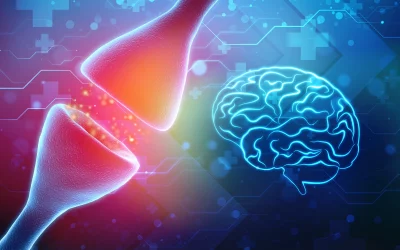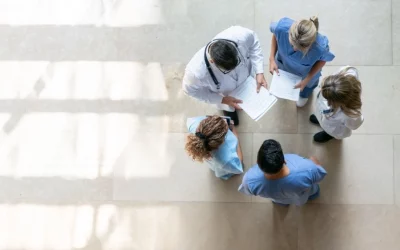Law Firm for Traumatic Brain Injuries in Colorado Springs
Traumatic brain injuries (TBIs) affect around 1.7 million persons in the United States each year. Many are associated with contact sports, including football, boxing, hockey, soccer, and rugby, while others are associated with civilian and military populations in combat zones. However, just because you’ve never deployed or participated in contact sports does not imply you’re immune to TBI.
Falls, motor vehicle accidents, and physical attacks such as domestic violence or bar brawls are major causes of TBI. TBIs are increasingly being recognized as a serious public health problem and a leading cause of mortality and disability worldwide.
Free Consultation
In Person | Phone | Zoom
What are traumatic brain injuries (TBIs)?
A TBI may occur whenever there is a trauma to the head and can range in severity from moderate to severe. The most frequent kind of TBI is mild TBI, sometimes known as a concussion.
Concussions are caused by a biomechanical force that causes direct or indirect brain damage. These pressures may stretch and bruise nerves in the brain and damage blood vessels, causing transient chemical and functional changes.
Brain inflammation, cellular injury and death, axonal damage, membrane disturbances, mitochondrial dysfunction, altered metabolism, and oxidative stress are possible consequences of a TBI. Brain abnormalities caused by more severe TBIs may continue longer or potentially result in permanent damage to brain cells.
TBI symptoms may include any (or all) of the following:
- Changes in behavior or mood
- Dizziness, fainting, tiredness, or headache
- Nausea and vomiting
- Sensitivity to light and scent
- Convulsions or seizures
- Compromised eyesight
- Dizziness, fainting, fatigue, or headache
On the other hand, TBI isn’t always visible, and it’s possible to have minor brain trauma without experiencing any of the indications mentioned above or symptoms. Recent data reveals that even if there are no obvious signs of TBI, chronic recurrent “subconcussive” head impacts may have long-term repercussions on the brain health.
Some of the long-term cognitive repercussions of TBI, which are sometimes referred to as an “invisible wound,” include:
- Neurocognitive impairments
- Post-traumatic stress disorder (PTSD)
- Anxiety, sadness, impaired social functioning, and an increased risk of suicide are all psychological health issues.
- Alzheimer’s disease, Parkinsonism, and Chronic Traumatic Encephalopathy are examples of neurodegenerative disorders (CTE)
What exactly is CTE?
CTE is a neurodegenerative illness that affects sports, military veterans, and others who have experienced repeated brain trauma. CTE is a long-term disorder that may develop years or decades after a person has recovered from the short-term consequences of a TBI.
A protein called “tau” fails in CTE, causing neurodegeneration by slowly spreading and collecting throughout the brain. CTE has been known to afflict boxers since the 1920s (when it was called “punch drunk”), but it was first proved in other sports in 2005 when data was released on Mike Webster, an American football player.
CTE has been linked to a lengthy period of repeated mild TBIs. Although there is a link between concussions and CTE, they do not always go together. A single concussion does not seem to be enough to cause CTE.
The average number of concussions in CTE individuals was 17 in the reported instances. However, there is a lot of variation in the number of concussions recorded and reported concussions. Because many head blows do not result in a concussion diagnosis, data on concussions are often underreported.
Many head injuries are deemed subconcussive but may nevertheless affect long-term cognitive function, in addition to those that go undetected. An offensive lineman in American football, for example, has been recorded to receive over 1,000 subconcussive hits in a single season. Family members reported no concussions in 16 percent of postpartum CTE patients, indicating that a subconcussive head injury may be enough to cause the illness.
Professional athletes and military people who travel (or have gone) to combat zones are the two groups most at risk for CTE development. More than 90 percent of former National Football League (NFL) players who donated their brains to study have pathologically diagnosed CTE. How Can Traumatic Brain Injuries (TBIs) Be Avoided?
Primary prevention or avoidance of head injury is the greatest technique for avoiding the negative short- and long-term consequences of TBI. However, while this is not always feasible, there are certain things you may do before and after a TBI to help prevent and lessen brain damage and enhance long-term results.
The greatest thing you can do is rest. When a TBI is suspected, an immediate and acute period of rest seems advantageous, as does avoiding further contact, collision, or energy expenditure. During this period, keep an eye out for any signs of clinical deterioration that indicate more serious brain damage. According to the 2017 Concussion in the Sport consensus statement, 24- 48 hours of relative physical and cognitive rest is recommended, followed by a gradual return to learning and physical activity (without exacerbating symptoms).
Get some exercise to speed up your recovery. Several studies have shown a link between early physical exercise and reduced post-concussive symptom duration. According to animal research, voluntary exercise boosts brain-derived neurotrophic factor (BDNF), which stimulates neuron development and repair. After a brief rest time, resuming everyday activities that do not exacerbate concussion symptoms seems to help.
Sleep. After a moderate TBI, poor sleep is linked to a higher concussion symptom load, more psychological suffering, and worse function and social outcomes. Treatment of sleep disruption after a TBI is gaining popularity as a way to enhance outcomes. In this area, further study is required.
Keep your “noggin” safe. Wear suitable head protection while sports or riding vehicles such as motorcycles, bikes, or skateboards. According to the data, the usage of helmets is connected with a decrease in TBI-related mortality and morbidity.
Omega-3 fatty acids are a kind of omega-3 fatty acid. Multiple animal research has indicated that DHA and EPA prevent cellular injury and bad outcomes associated with TBI, despite comprehensive human trials and a lack of understanding of the underlying processes. Ensuring proper Omega-3 levels may help to preserve the brain while also boosting functional results.
What Role Does Omega-3 Have in Brain Protection?
Long-chain Omega-3 polyunsaturated fatty acids (PUFAs) found in large proportions in marine algae and fish include DHA and EPA. DHA and EPA are required for healthy brain and central nervous system development, structure, and function (CNS).
Omega-3 supplementation before or after TBI protects the brain by limiting structural damage to the axon and events such as neuronal apoptosis, restoring the expression of specific protective mediators, reducing injury-induced inflammation, oxidative stress, and cognitive dysfunction, according to animal studies. Here is a collection of preclinical research and their reported results.
Despite a large body of data supporting omega-3s’ neuroprotective properties in experimental animal models, their significance in human brain injury is still unknown. The efficacy of omega- 3 fatty acids in TBI therapy was initially emphasized in case studies, including the lone survivor of the Sago Mine catastrophe and a youngster engaged in a car accident. Several more case studies have been published since then, including a study of nine consecutive patient cases with severe TBI who were treated with high-dose omega-3 fatty acids.
All of the case studies indicated that, even in a preventive situation, early and appropriate dosages of omega-3 fatty acids might enhance TBI outcomes and reverse the negative effects of TBI on cognition. Simple tests may be used to evaluate omega-3 levels in yourself or your loved ones to guarantee that ideal levels are achieved.
Is There Anything Else Being Done to Prevent TBI?
Contributions to study, teaching and prevention have increased as concern for safety in sports and the military services have expanded. Over 250,000 blast wave-induced, TBI patients were wounded by explosive devices while deployed, and the Department of Defense has committed
$700 million in enhancing clinical diagnosis and therapy. Similarly, the NFL has formed a new medical committee to research TBI and has begun a multi-pronged strategy to make football safer for players.
Many sports’ rules of play and policies have also undergone revisions in recent years. In youth sports, “Hit Count” is a policy that has been adopted by some states that restrict the number of head collisions a player may have in a specific length of time.
What’s the Link Between Omega-3 and Headaches?
To prevent head hits, the NFL and university sports organizations such as the Ivy League and the PAC-12 conference have reduced the amount of full-contact sessions. In 2012, Pop Warner Football, the biggest youth football program in the United States, followed similar steps.
Although support for these restrictions is not uniform, awareness, lobbying, and policy reforms aimed at reducing the risk of TBI seem to be expanding and gaining momentum throughout the country.
Finally, for better TBI prevention and outcomes, more research and education are required. Over the last several years, groups have created concussion education materials to provide coaches, school officials, players, and parents with credible information about concussions. Check out the links below if you want to learn more about some of these resources.
Mothers persuaded their children to eat fish by telling them it was “brain food” that would help them study better in school. Due to the inclusion of omega–3 fatty acids, fish oil was related to protection against heart attacks and stroke a century later. The fish oil business grew swiftly to become a multibillion-dollar industry, and it continues to expand.
According to a new study published in the American College of Nutrition, our great grandmothers were correct. Fish is beneficial to your mental health. In reality, research shows that consuming large amounts of omega-3 fatty acids (n-3FA), such as those contained in fish oil, may help patients recover from traumatic brain injury (TBI) concussions and post- concussions.
According to studies published in the article Concussions, Traumatic Brain Injury, and the Innovative Use of Omega-3s, omega-3 fatty acids have the potential to enhance TBI outcomes when utilized early and appropriately.
In preclinical research, three brain damage case studies were examined: a mining accident, a motor vehicle accident, and a drowning accident. Patients with life-threatening injuries restored brain health with the help of omega-3 fatty acids in each instance (n-3FA).
Several clinicians’ clinical experiences saturate the brain with large dosages of n-3FA, allowing the wounded brain to repair. Healing is less likely to occur if you don’t have enough omega 3, but it’s not always a cure. The catastrophic brain damage suffered by Evert is unique.
Some people may react to omega-3 medication better than others. There is no scenario in which this therapy cannot be used since it does no damage. It is critical to delivering appropriate nourishment to the brain to provide the patient with the greatest chance of recovering after a TBI. TBI therapy has been a clinical difficulty until this promising discovery. Until yet, no effective therapy has been discovered in the research. Omega-3 may not be the cure-all for traumatic brain damage, but it shows promise and will be successful in many situations.
Experience Attorney for Brain Injury Cases
Every year, 1.7 million Americans suffer from traumatic brain injuries. Fifty-two thousand people die, 275,000 are admitted to hospitals, and 1.365 million are treated and discharged. More than half of all traumatic brain injuries are caused by falls or motor vehicle accidents.
Warrior Car Accident Lawyers, is dedicated to lowering the rate of TBI and assisting individuals who have been wounded. A personal injury attorney Warrior Car Accident Lawyers, would like to chat with you if you were hurt in a motor vehicle accident or a fall that you believe was caused by no fault of your own. For your injuries, you may be entitled to a sizable settlement.












